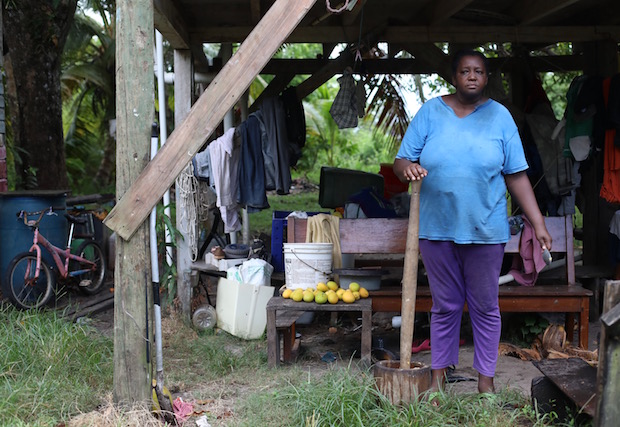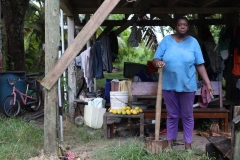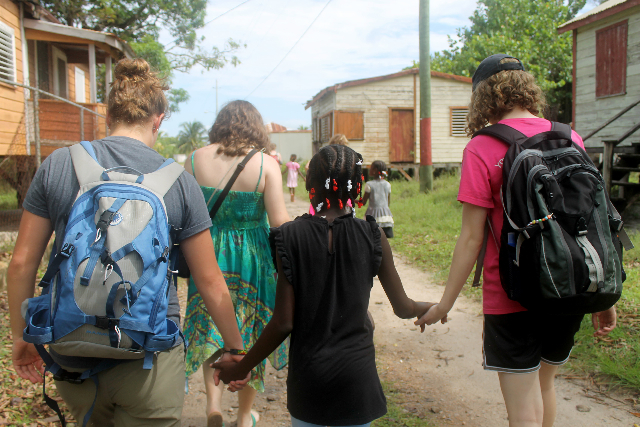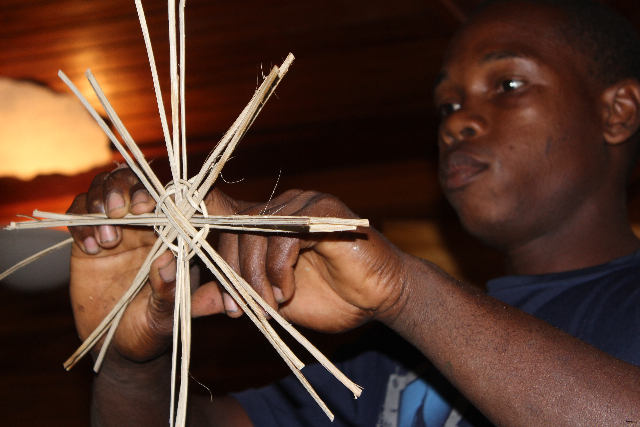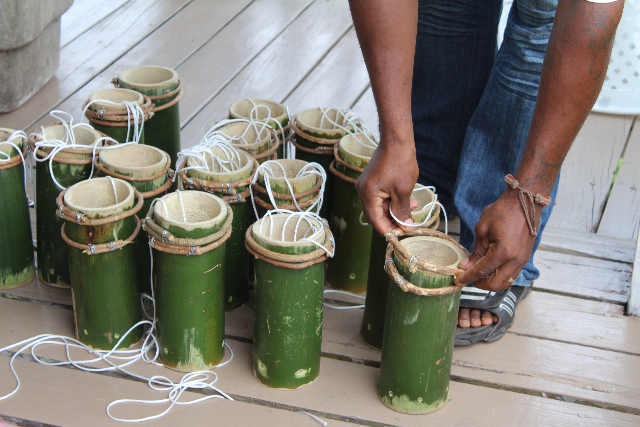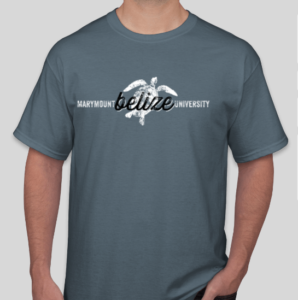Sociology
Enrollment is required for this course as well when enrolling in BIO 127 or BIO 327
While living in the Gales Point community experience firsthand the rich Creole traditions and culture. Participate in traditional Creole food preparation, a local drum circle, and basket and drum making. Learn about the lifestyle of local fishermen and farmers from villagers. Participate in local customs and ceremonies handed down through generations of former British slaves and mahogany loggers.
This course satisfies the Marymount University’s Liberal Arts Core requirement for a Social Science.“Sambai is a great activity, I liked it the most since I love hearing and seeing how different
cultures dance and how they all get together and celebrate together. This is something that you can’t experience anywhere else, and participating with the dancing was fun since they pick you and there is NO WAY you can say no.”
-Tatyanna Parral, Summer 2017The native people relied heavily on what the land had to offer in more than just an agricultural sense. On the same note, the animals and forests depended on the people to be responsible and help maintain them. This interconnectedness was very appealing to me.
— Zoe Saulsgiver, Summer 2013
Course instructor: Dr. Stephanie Ellis
Dr. Stephanie Ellis’ research includes juvenile justice, and the contributing factors in the development of persistent criminal behavior and severe and chronic poverty and serious violence. Dr. Ellis earned her undergraduate degree from Marymount University and currently teaches in Marymount’s Criminal Justice Program.
The ‘Through the Social Lens: Belize’ course provides students with the unique opportunity to experience a culture much different then their own. An enriching opportunity for individual reflection one’s own cultural norms in relationship to those living in a remote village of minimal means.
Possibly the best thing here is the people. I can see beautiful animals and a clear ocean in many other places, but the people here feel like close friends and family.
—Amanda Ghobadi, Summer 2013
 Hawksbill Hope
Hawksbill Hope